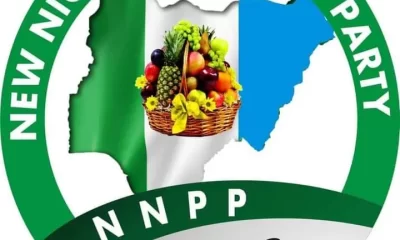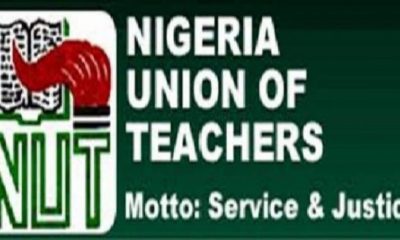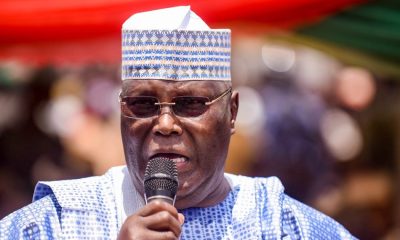Education
NUT Distributes 50 Motorcycles to Members
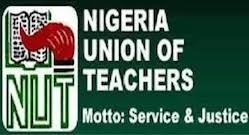
From Alfred Babs, Ilorin
The Kwara State branch of the Nigeria Union of Teachers (NUT) has distributed 50 motorcycles to teachers in the 16 local government areas of the state to cushion the effect of the recent petroleum price increase in the country.
The motorcycles, which were purchased through the NUT Endwell Programme, were given out to interested teachers on loan to be repaid in one year.
Speaking at event, tagged “the flag off of Motorcycle loan for Kwara Teachers by the NUT”, Chairman of the Union, Comrade Olu Adewara said that the distribution of the Motorcycles is to assist members to get to their places of work punctually adding that the fuel economy of the Motorcycle would enable them to cover more kilometers with less fuel.
Adewara who described the event as the first of it kind said, “Although, we have Endwell Loan Scheme where we give items such as Washing Machine, Plasma Television, building materials such as Roofing Sheets, Cement, Asbestos etc to Teachers in the state before, this is the first time we are distributing Motorcycles to Teachers because we’re concerned with the purse of our members.
“In this time of fuel price increase, we need a vehicle that will take us to many kilometers without having much effect on our take home pay. The type of Motorcycle we are distributing can make over 60 kilometers with one litre of fuel,” he said.
The Chairman said that the provision of Motorcycle would go a long way in checking truancy and lateness of teachers to schools.
The Permanent Secretary, Ministry of Education and Human Capital Development, Mrs Mary Adeosun who represented the Commissioner, Hajia Fatimah Ahmed commended the NUT for going extra mile in initiating the programme which she said would assist teachers in the rural areas.
The Special Assistant on Community intervention, Mr Kayode Oyin-Zubair who represented the state governor, Abdulrahman Abdulrazaq said that teachers should not see the programme to mean poverty alleviation adding that it would assist them to move freely in the rural areas.
Oyin-Zubair said that the government had made efforts to ensure that the spare parts of the motorcycle brand are available in every part of the state while the manufacturer also promised to train those that would repair the automobile in the state.
Education
Kano Bureau of STATISTICS Clarifies 2025 NECO SSCE Performance

The Kano State Bureau of Statistics says Gov. Abba Yusuf’s recent statement on the 2025 NECO SSCE results is supported by official NECO statistics.
This was contained in a statement issued by Statistician-General Kano State Bureau of Statistics Aliyu Isa-Aliyu, in Kano recently.
Isa-Aliyu said that the bureau provided the clarification on the 2025 NECO SSCE results, following a publication by an online Newspaper that questioned Yusuf’s claim that the state produced the highest number of students with five Credits and above in the examination.
The bureau dismissed the online publication as a distortion of facts, emphasising that Kano State emerged as the undisputed leader in the 2025 NECO SSCE across almost all key indicators.
According to the bureau’s analysis of NECO’s official figures, Kano ranked first in five out of six major indicators.
The state had the highest candidate participation with 137,338 registered, 136,762 sat, and 103,579 attained five credits and above, irrespective of Mathematics and English.
Kano also emerged as the leader in female education, with 39,851 girls obtaining five credits including Mathematics and English, the highest in the country.
In male performance, Kano recorded 43,808 candidates attaining five credits irrespective of Mathematics and English, surpassing Lagos and Oyo.
According to NECO’s statistics, the percentage pass rate was calculated based on all candidates, including those from countries like Saudi Arabia and Niger Republic.
Notably, eight candidates from Saudi Arabia all passed, achieving a 100 per cent performance.
The bureau confirmed that the Governor’s statement was accurate and it aligned with NECO’s official statistics.
It added that the data used for this analysis was sourced from the National Examination Council (NECO), provided by Registrar Prof. Wushishi.
| ReplyReply allForwardAdd reaction |
Education
UBEC Urges Spokespersons to Drive Education Reform through Strategic Communication

The Executive Secretary, Universal Basic Education Commission (UBEC), Aisha Garba, has called on public relations officers across the 36 states and the Federal Capital Territory (FCT) to assume stronger roles in communicating government reforms in the basic education sector.
She made the call on Monday in Abuja at the opening of a two-day training workshop for heads of public relations of State Universal Basic Education Boards (SUBEBs), with the theme: “Strengthening Strategic Communication for Effective Basic Education Delivery.
”The Executive Secretary described the participants as “Gatekeepers of information and shapers of narratives,” stressing that effective communication is critical to achieving the goals of President Bola Tinubu’s Renewed Hope Agenda for Education.
“The most brilliant policies and the most dedicated efforts can fail to achieve their full potential if they are not effectively communicated,” she said. “Your work breathes life into our policies. You are the storytellers who will convey the hope and the tangible benefits of the ongoing reforms to every corner of your states.”
Garba explained that the commission is aggressively pursuing reforms targeted at reducing the number of out-of-school children, enhancing teacher training and development, and promoting skills acquisition to prepare Nigerian children for the future.
According to her, while the commission has rolled out several initiatives to revitalise basic education, their success depends largely on how well they are understood and embraced by the public.
The Executive Secretary described the role of PR officers as a “national calling,’ urging them to be proactive, innovative, and persuasive in shaping public perception and building trust among parents, teachers, community leaders, and policymakers.
“This training is not about business as usual. It is about sharpening our tools, rethinking our strategies, and embracing new and innovative ways to engage with the public. We cannot afford to be reactive. We must be proactive, passionate, and persuasive champions for basic education,” she charged.
She concluded by challenging participants to use the two-day training to recommit themselves to national renewal in education, adding that “the time for incremental change is over; the time for transformative impact is now.”
The training, which takes place from September 15 to 16, aims to enhance the capacity of state education communicators in promoting the commission’s policies and promoting wider acceptance of ongoing reforms.
Education
NABTEB Commences Review, Validation of 26 Trade Syllabi for Technical Colleges
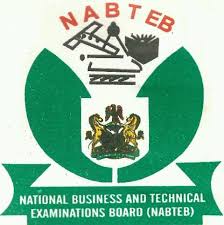
The National Business and Technical Examinations Board (NABTEB) has commenced the review and validation of 26 trade syllabi for technical colleges in the country.
Registrar, NABTEB, at the five-day exercise in Abuja on Monday, Dr. Mohammed Mohammed said the exercise was part of efforts to reposition technical education in line with global best practices.
Mohammed described the review as a transformative initiative that would reshape the landscape of technical education in Nigeria.
He noted that the revised syllabi would ensure that graduates acquire skills relevant to the modern economy.
According to him, the 26 trade areas cut across both emerging technologies and traditional crafts, including robotics, coding and machine learning, automotive mechatronics, smart agriculture, electrical and solar PV installations, cinematography, among others.
“This comprehensive selection reflects our understanding that Nigeria’s economic future depends on a skilled workforce capable of operating across traditional and emerging sectors.
“The inclusion of environmentally conscious programmes such as Solar PV installations and Smart Agriculture demonstrates our commitment to sustainable development,” he said.
He commended the collaboration between NABTEB and the National Board for Technical Education (NBTE), describing it as a model for inter-agency partnership in advancing technical and vocational education.
The NABTEB boss also acknowledged the input of industry stakeholders in aligning the curricula with labour market demands, and called for their continued participation in providing internship opportunities, mentorship and workplace learning.
He assured that NABTEB would provide educator training, develop assessment tools, and maintain strict quality assurance during implementation.
On his part, Prof. Idris Bugaje, The Executive Secretary, NBTE, stressed that the reviewed syllabi must be effectively implemented across technical colleges to build a stronger foundation for vocational education.
Bugaje, represented by Hajia Hajara Abdulkadri, a director in the agency, said the review was a vital step in achieving the vision of empowering Nigerian youths with the skills needed to thrive in the changing economy.
Also speaking, a representative of principals of Federal Technical Colleges (FTC), Frank Omale, described the initiative as a milestone that would help align technical education with the aspirations of Nigeria.
Omale, who is also the principal, FTC, Orozo, pledged the support of principals to the successful implementation of the trade curricula, adding that they would continue to mentor and guide students to become skilled, disciplined and patriotic citizens.
In her remarks, Dr. Muyibat Olodu, the Director of Technology and Science Education in the Federal Ministry of Education, represented by Kola Osundeyi, said the review was expected to enhance the quality and effectiveness of technical education in line with industry needs and global standards.
She called on stakeholders to ensure that practical skills, emerging technologies and innovative teaching methods were fully integrated into the syllabi.

